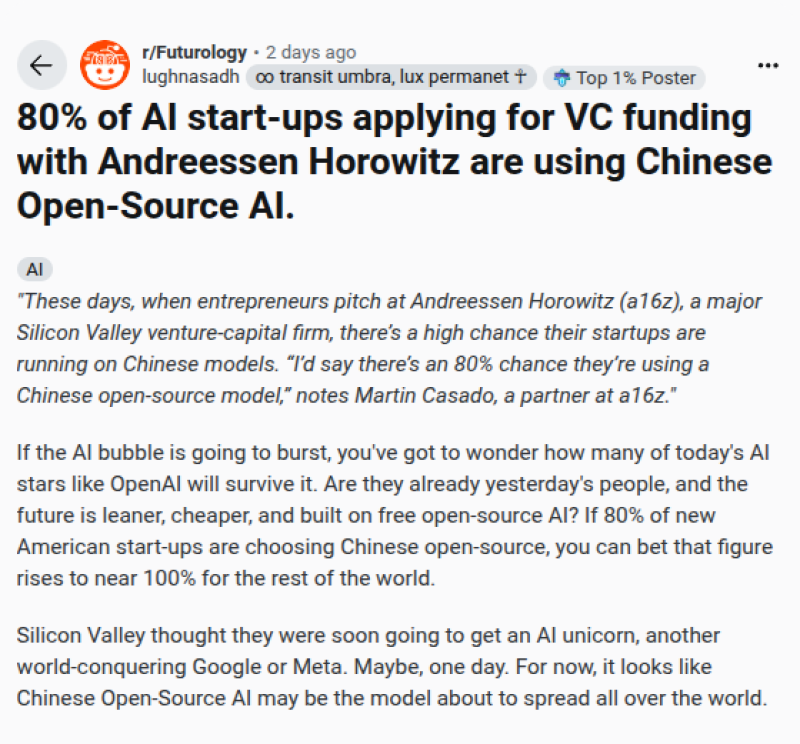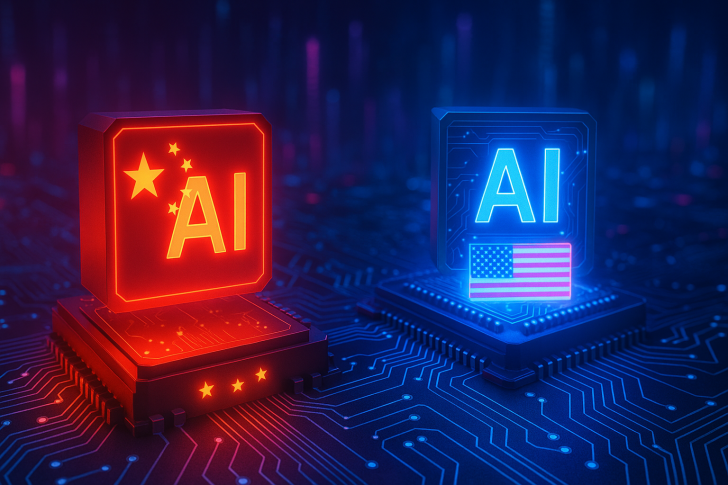⬤ A recent industry observation revealed that 80% of startups pitching to Andreessen Horowitz have shifted away from US AI systems like OpenAI and Anthropic, choosing Chinese open-source models instead. Platforms like DeepSeek are leading this movement, offering extremely low costs while delivering competitive performance. This price advantage has become the single most important factor determining which AI foundation startups adopt.

⬤ The numbers tell the story. DeepSeek trained its model for roughly $5 million, while OpenAI spends about $500 million every six months on GPT-5 training. That gap creates a massive difference in API pricing: Chinese models run at $0.14 per million tokens compared to GPT-4's $30 price tag. For a startup processing 100 million tokens monthly, that's $1,400 versus $300,000—the difference between an 18-month runway and burning through cash in three months. It's not about which model performs better; it's about which one a startup can actually afford.
⬤ Chinese models like DeepSeek, Qwen, and Yi currently occupy all 16 top spots in open-source rankings. Their lightweight infrastructure lets companies fine-tune systems for specific needs rather than paying premium prices for generic outputs. While Silicon Valley focused on building the most powerful models and chasing AGI, Chinese labs optimized for efficiency and widespread distribution. That efficiency has turned into a genuine competitive advantage that's reshaping the market.

⬤ This shift has real implications for AI's competitive landscape. While Apple, Google, and OpenAI continue investing in premium models and long-term research, the startup ecosystem is moving toward affordability and accessibility. As more early-stage companies build on low-cost open-source AI, the infrastructure balance is tilting toward providers who prioritize efficiency and scale over raw capability.
 Sergey Diakov
Sergey Diakov

 Sergey Diakov
Sergey Diakov


